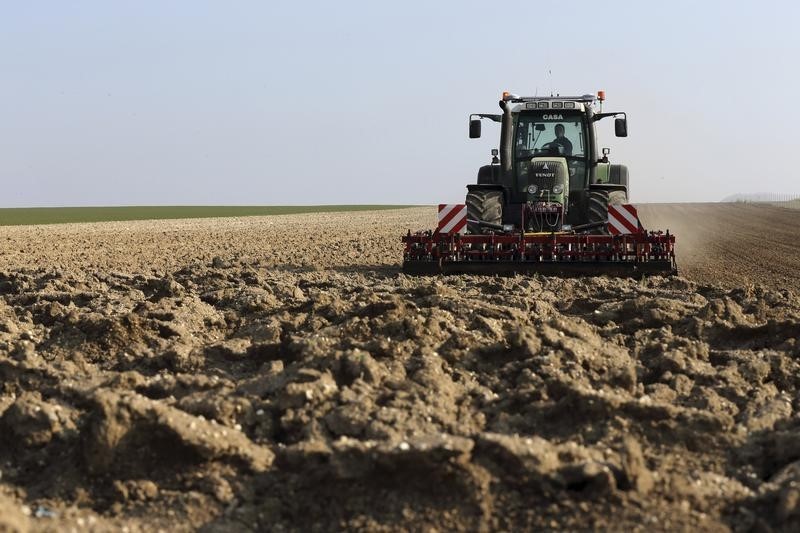By Colin Packham and Sonia Feng
SYDNEY, Dec 22 (Reuters) - Gooda Creek Farm, located just outside Australia's capital city of Canberra, exemplifies the country's agricultural ambitions - a boutique producer that sells more than 2,000 kilograms a week of highly sought shiitake mushrooms to domestic and Asian consumers.
But when the farm suffered an internet outage in August, business owner Ivy Liu was unable to send invoices for more than two weeks, hampering business in a technical hindrance that has become common for many farmers, the government admits.
Australia's A$50 billion ($37.67 billion) National Broadband Network (NBN) was supposed to be the catalyst that transformed the country's agriculture, connecting farms with the global economy and improving internet services for rural communities in one of the world's most sparsely populated nations.
The digitialisation of agriculture has revolutionised farming in many parts of Europe and the Americas with precision equipment and access to real-time market data boosting productivity and helping farmers better allocate resources.
In Australia, however, government cost-cutting, technological downgrades and reduced geographic roll-outs of the broadband network have left a missing economic link for many farmers with internet services unreliable, slow and expensive. agriculture really is the next revolution for farming," said Mark Harvey-Sutton, manager of rural affairs at Australia's National Farmers Federation, a lobby group.
"For many producers though, the NBN does not have the potential for digital agriculture - there is so much untapped potential across the sector."
The NBN was designed to bring faster optic fibres closer to the home than older ADSL connections, which are more reliant on the slower copper wires of legacy telephone connections.
While this in theory should provide faster data speeds, the operator of the NBN earlier this year said the majority of customers are getting internet speeds that are no better than their older ADSL connections.
Agricultural production has hit a record A$63 billion this year, however, productivity growth across the sector has slowed in the last decade, data from the Australian Bureau of Agricultural and Resource Economics and Sciences shows.
Precision agriculture, the use of sensors and robots to autonomously optimise the use of expensive inputs such as fertiliser to maximise production, offer the best hope of arresting the slide, farmers and analysts say.
But for many farmers who have managed to connect to the NBN, bandwidth remains woefully inadequate to meet the data requirements of technologically sophisticated producers.
Will Bignell, a livestock and irrigation farmer from Bothwell in Tasmania, uses technology ranging from soil moisture probes through to web cameras so he can remotely monitor the watering of his crops. However, his NBN connections fail to deal with the most basic of demands, he says.
"If we run a couple of web cams and shift some data about, and then someone is at home and wants to watch Netflix (NASDAQ:NFLX)...you run out of space to do anything," said Bignell.
The lack of decent connectivity also means newly developed robots, sophisticated enough to pick only ripe fruit, have failed to materialise. Farmers say without the supporting data infrastructure, such equipment is not worth the investment.
Academics believe such technology offers the best shot at curbing a labour shortage across Australia's farms, which are highly dependent on itinerant "backpacker" labour.
Government data shows the number of backpackers, tourists who have working visas, willing to take on the three-month rural work in 2016 fell 10 percent from the previous season to hit a six-year low.
Despite the introduction of special visas that allow tourists to stay for a second year if they do three months work in rural Australia, farmers are still struggling to attract the labour they need to harvest their crops.
While a tax increase last year and difficult working conditions are among major factors behind the decline in willing workers, farmers say a lack of decent wifi connections is also a major turn-off for many travellers looking for short-term work.
Andrew Sevil, a livestock and crop farmer in Dirranbandi, 600 kilometres west of Brisbane, was so frustrated by unreliable internet speeds, he built a 53-metre internet tower in a bid to make life on his farm more attractive for workers.
"They tend to ask these days whether they can access the internet before they even ask how much they're being paid - it's that important," said Sevil.
($1 = 1.3273 Australian dollars)
